18 start with L start with L
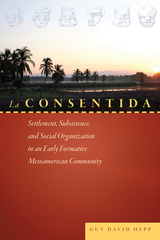
La Consentida explores Early Formative period transitions in residential mobility, subsistence, and social organization at the site of La Consentida in coastal Oaxaca, Mexico. Examining how this site transformed during one of the most fundamental moments of socioeconomic change in the ancient Americas, the book provides a new way of thinking about the social dynamics of Mesoamerican communities of the period.
Guy David Hepp summarizes the results of several seasons of fieldwork and laboratory analysis under the aegis of the La Consentida Archaeological Project, drawing on various forms of evidence—ground stone tools, earthen architecture, faunal remains, human dental pathologies, isotopic indicators, ceramics, and more— to reveal how transitions in settlement, subsistence, and social organization at La Consentida were intimately linked. While Mesoamerica is too diverse for research at a single site to lay to rest ongoing debates about the Early Formative period, evidence from La Consentida should inform those debates because of the site’s unique ecological setting, its relative lack of disturbance by later occupations, and because it represents the only well-documented Early Formative period village in a 300-mile stretch of Mexico’s Pacific coast.
One of the only studies to closely document multiple lines of evidence of the transition toward a sedentary, agricultural society at an individual settlement in Mesoamerica, La Consentida is a key resource for understanding the transition to settled life and social complexity in Mesoamerican societies.
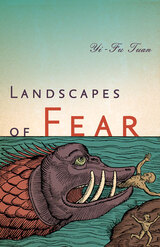
To be human is to experience fear, but what is it exactly that makes us fearful? Landscapes of Fear—written immediately after his classic Space and Place—is renowned geographer Yi-Fu Tuan’s influential exploration of the spaces of fear and of how these landscapes shift during our lives and vary throughout history.
In a series of linked essays that journey broadly across place, time, and cultures, Tuan examines the diverse manifestations and causes of fear in individuals and societies: he describes the horror created by epidemic disease and supernatural visions of witches and ghosts; violence and fear in the country and the city; fears of drought, flood, famine, and disease; and the ways in which authorities devise landscapes of terror to instill fear and subservience in their own populations.
In this groundbreaking work—now with a new preface by the author—Yi-Fu Tuan reaches back into our prehistory to discover what is universal and what is particular in our inheritance of fear. Tuan emphasizes that human fear is a constant; it causes us to draw what he calls our “circles of safety” and at the same time acts as a foundational impetus behind curiosity, growth, and adventure.
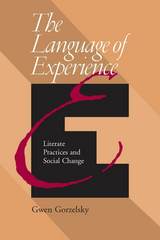
The Language of Experience examines the relationship between literacy and change--both personal and social. Gorzelsky studies three cases, two historical and one contemporary, that speak to key issues on the national education agenda.
"Struggle" is a community literacy program for urban teens and parents. It encourages them to reflect on, articulate, and revise their life goals and design and implement strategies for reaching them. To provide historical context for this and other contemporary efforts in using literacy to promote social change, Gorzelsky analyzes two radical religious and political movements of the English Civil Wars and the 1930s unionizing movement in the Pittsburgh region. Charting the similarities and differences in the function of literate practices in each case shows how different situations and contexts can foster very different outcomes.
Gorzelsky's analytic frame is drawn from Gestalt theory, which emphasizes the holistic nature of perception, communication, and learning. Through it she views how discourse and language structures interact with experience and how this interaction changes awareness and perception.
The book is methodologically innovative in its integration of a macro-social view of cultural, social, and discursive structures with a micro-social view of the potential for change embodied in them. Through her analysis and in her use of the voices of the people she studies, Gorzelsky offers a tool for analyzing individual instances of literate practices and their potential for fostering change.
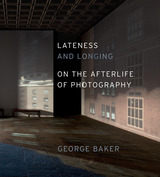
Beginning in the 1990s, a series of major artists imagined the expansion of photography, intensifying its ideas and effects while abandoning many of its former medium constraints. Simultaneous with this development in contemporary art, however, photography was moving toward total digitalization.
Lateness and Longing presents the first account of a generation of artists—focused on the work of Zoe Leonard, Tacita Dean, Sharon Lockhart, and Moyra Davey—who have collectively transformed the practice of photography, using analogue technologies in a dissident way and radicalizing signifiers of older models of feminist art. All these artists have resisted the transition to the digital in their work. Instead—in what amounts to a series of feminist polemics—they return to earlier, incomplete, or unrealized moments in photography’s history, gravitating toward the analogue basis of photographic mediums. Their work announces that photography has become—not obsolete—but “late,” opened up by the potentially critical forces of anachronism.
Through a strategy of return—of refusing to let go—the work of these artists proposes an afterlife and survival of the photographic in contemporary art, a formal lateness wherein photography finds its way forward through resistance to the contemporary itself.
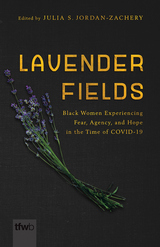
Black women and girls in the United States are among the hardest hit by the pandemic in terms of illnesses, deaths, evictions, and increasing economic inequality. Riffing off Alice Walker’s telling of her search for Zora Neal Hurston, the authors of these essays and reflections offer raw tellings of Black girls’ and women’s experiences written in real time, as some of the contributors battled COVID-19 themselves.
The essays center Black girls and women and their testimonies in hopes of moving them from the margin to the center. With a diversity of voices and ages, this volume taps into the Black feminine interior, that place where Audre Lorde tells us that feelings lie, to access knowledge—generational, past, and contemporary—to explore how Black women navigate COVID-19. Using womanism and spirituality, among other modalities, the authors explore deep feelings, advancing Black feminist theorizing on Black feminist praxis and methodology.
In centering the stories of Black girls and women’s experiences with COVID-19, this work brings much-needed justice and equity to conversations about the pandemic. Just as Walker worked diligently to find Hurston, Lavender Fields attempts to “find” Black women amid all we are experiencing, ensuring visibility and attention.
Contributors
Tamaya Bailey
reelaviolette botts-ward
Kyrah K. Brown
Brianna Y. Clark
Kenyatta Dawson
LeConté J. Dill
Maryam O. Funmilayo
Brandie Green
Courtney Jackson
Sara Jean-Francois
Julia S. Jordan-Zachery
Angela K. Lewis-Maddox
Annet Matebwe
Mbali Mazibuko
Radscheda Nobles
Nimot Ogunfemi
J. Mercy Okaalet
Chizoba Uzoamaka Okoroma
Peace Ossom-Williamson
Elizabeth Peart
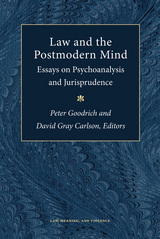
While psychoanalytic interpretations of law are by no means a novelty within common law jurisprudence, the extent and possibilities of the terrain opened up by psychoanalysis have yet to be extensively addressed. The intentional subject and "reasonable man" of law are disassembled in psychoanalysis to reveal a chaotic and irrational libidinal subject, a sexual being, a body and its drives. The focus of the present collection of essays is upon desire as an inner law, upon love as an interior idiom of legality, and represents a signficant and at times surprising development of the psychoanalytic analysis of legality.
These essays should appeal to scholars in law and in psychology.
The contributors are Drucilla Cornell, Jacques Derrida, Peter Goodrich, Pierre Legendre, Alain Pottage, Michel Rosenfeld, Renata Salecl, Jeanne L. Schroeder, Anton Schutz, Henry Staten, and Slavoj Zizek.
David Gray Carlson is Professor of Law, Benjamin Cardozo School of Law, Yeshiva University. Peter Goodrich is Professor of Law, University of London and University of California, Los Angeles.
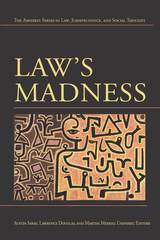
The distinguished contributors to Law's Madness propose a fascinating interdisciplinary approach to the instability and mutual permeability of law and madness. Their essays examine a variety of discursive forms—from the literary to the historical to the psychoanalytic—in which law is driven more by narrative than by reason. Their studies delineate the ways in which the law takes its definition in part from that which it excludes, suppresses, or excises from itself, illuminating the drive to enforce barriers between non-reason and legality, while simultaneously shedding new light on the constitutive force of the irrational in legal doctrine.
Law's Madness suggests that the tense and paradoxical relationship between law and madness is precisely what erects and sustains law. This provocative collection asks what must be forgotten in order to uphold the rule of law.
Austin Sarat is William Nelson Cromwell Professor of Jurisprudence and Political Science at Amherst College. Lawrence Douglas is Associate Professor of Law, Jurisprudence, and Social Thought at Amherst College. Martha Merrill Umphrey is Associate Professor of Law, Jurisprudence, and Social Thought at Amherst College.
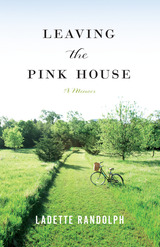
On September 12, 2001, Randolph and her husband bought a dilapidated farmhouse on twenty acres outside Lincoln, Nebraska, and set about gutting and rebuilding the house themselves. They had nine months to complete the work. The project, undertaken at a time of national unrest and uncertainty, led Randolph to reflect on the houses of her past and the stages of her life that played out in each, both painful and joyful. As the couple struggles to bring the dilapidated house back to life, Randolph simultaneously traces the contours of a life deeply shaped by the Nebraska plains, where her family has lived for generations, and how those roots helped her find the strength to overcome devastating losses as a young adult. Weaving together strands of departures and arrivals, new houses and deep roots, cycles of change and the cycles of the seasons, Leaving the Pink House is a richly layered and compelling memoir of the meaning of home and family, and how they can never really leave us, even if we leave them.

There are two kinds of knowledge law school teaches: legal rules on the one hand, and tools for thinking about legal problems on the other. Although the tools are far more interesting and useful than the rules, they tend to be neglected in favor of other aspects of the curriculum. In The Legal Analyst, Ward Farnsworth brings together in one place all of the most powerful of those tools for thinking about law.
From classic ideas in game theory such as the “Prisoner’s Dilemma” and the “Stag Hunt” to psychological principles such as hindsight bias and framing effects, from ideas in jurisprudence such as the slippery slope to more than two dozen other such principles, Farnsworth’s guide leads readers through the fascinating world of legal thought. Each chapter introduces a single tool and shows how it can be used to solve different types of problems. The explanations are written in clear, lively language and illustrated with a wide range of examples.
The Legal Analyst is an indispensable user’s manual for law students, experienced practitioners seeking a one-stop guide to legal principles, or anyone else with an interest in the law.
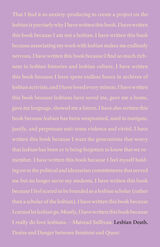
Engaging with fears of lesbian death to explore the value of lesbian beyond identity
The loss of lesbian spaces, as well as ideas of the lesbian as anachronistic has called into question the place of lesbian identity within our current culture. In Lesbian Death, Mairead Sullivan probes the perception that lesbian status is in retreat, exploring the political promises—and especially the failures—of lesbian feminism and its usefulness today.
Lesbian Death reads how lesbian is conceptualized in relation to death from the 1970s onward to argue that lesbian offers disruptive potential. Lesbian Death examines the rise of lesbian breast cancer activism in San Francisco in conversation with ACT UP, the lesbian separatist manifestos “The C.L.I.T. Papers,” the enduring specter of lesbian bed death, and the weaponization of lesbian identity against trans lives.
By situating the lesbian as a border figure between feminist and queer, Lesbian Death offers a fresh perspective on the value of lesbian for both feminist and queer projects, even if her value is her death.
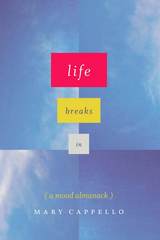
Some books start at point A, take you by the hand, and carefully walk you to point B, and on and on.
This is not one of those books. This book is about mood, and how it works in and with us as complicated, imperfectly self-knowing beings existing in a world that impinges and infringes on us, but also regularly suffuses us with beauty and joy and wonder. You don’t write that book as a linear progression—you write it as a living, breathing, richly associative, and, crucially, active, investigation. Or at least you do if you’re as smart and inventive as Mary Cappello.
What is a mood? How do we think about and understand and describe moods and their endless shadings? What do they do to and for us, and how can we actively generate or alter them? These are all questions Cappello takes up as she explores mood in all its manifestations: we travel with her from the childhood tables of “arts and crafts” to mood rooms and reading rooms, forgotten natural history museums and 3-D View-Master fairytale tableaux; from the shifting palette of clouds and weather to the music that defines us and the voices that carry us. The result is a book as brilliantly unclassifiable as mood itself, blue and green and bright and beautiful, funny and sympathetic, as powerfully investigative as it is richly contemplative.
“I’m one of those people who mistrusts a really good mood,” Cappello writes early on. If that made you nod in recognition, well, maybe you’re one of Mary Cappello’s people; you owe it to yourself to crack Life Breaks In and see for sure.

Weitz describes how these people are affected by and respond to the changes in their bodies and their social relationships, from the time when they realize that they are at risk of infection to the time when death approaches. It covers such issues as how individuals obtain diagnoses, develop their initial ideas about what the future will bring, and come to terms with their impending deaths. To put this into a broader context, she also explores the moral status of illness in general and looks at why some illnesses, including HIV disease, have become especially stigmatized.
The author also explores how doctors are affected by and cope with the unique pressures of treating persons with HIV disease. The concluding chapter theorizes about how changes in the social construction, demographic distribution, and treatment of HIV disease are changing the lives of people with AIDS.
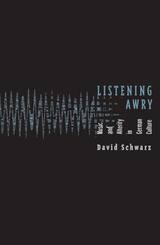
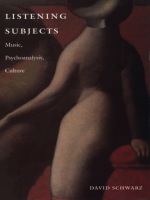
Schwarz applies the ideas of post-Lacanian psychoanalytic theorists Slavoj Zizek, Julia Kristeva, and Kaja Silverman to an analysis of diverse works. In a discussion of John Adams’s opera Nixon in China, he presents music listening as a fantasy of being enclosed in a second skin of enveloping sound. He looks at the song cycles of Franz Schubert as an examination and expression of epistemological doubts at the advent of modernism, and traverses fantasy "space" in his exploration of the white noise at the end of the Beatles’ "I Want You (She’s So Heavy)." Schwarz also considers the psychosexual undercurrent in Peter Gabriel’s "Intruder" and the textual and ideological structures of German Oi Musik. Concluding with a reading of two compositions by Diamanda Galás, he reveals how some performances can simultaneously produce terror and awe, abjection and rage, pleasure and displeasure. This multilayered study transcends other interventions in the field of musicology, particularly in its groundbreaking application of literary theory to popular and classical music.
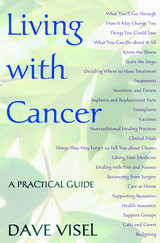
In this essential guide, Dave Visel draws on expertise hard-won during his wife’s battle with lymphoma. He provides an overview of the varieties of cancer and all the basic types of treatments available. Chapters dispel common myths associated with these treatments and provide tips on nutrition and physical fitness. Visel also moves beyond the hospital to provide information and strategies to help with the emotional, practical, and financial effects of a diagnosis. Cancer patients will find the tools they need to make well-informed decisions on questions ranging from the right time to tell coworkers to whether to travel for treatment. Because medical bankruptcies affect nearly two million Americans each year, Visel devotes several chapters to financial issues. He also addresses the effects of cancer on relationships, such as how to deal with a difficult parent or whether to reconcile with an estranged spouse. In addition, Living with Cancer provides a comprehensive overview of the most useful corporate, government, and non-profit resources available. Anyone looking for help in understanding the full range of personal, professional, and legal issues associated with cancer will welcome this book. As inspiring as it is informative, it is a survival guide in the truest sense.
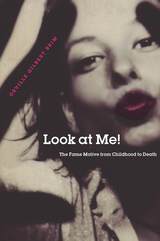
Four million adults in the United States say that becoming famous is the most important goal in their lives. In any random sampling of one hundred American adults, two will have fame as their consuming desire. What motivates those who set fame as their priority, where did the desire come from, how does the pursuit of fame influence their lives, and how is it expressed? Based on the research of Orville Gilbert Brim, award-winning scholar in the field of child and human development, Look at Me! answers those questions.
Look at Me! examines the desire to be famous in people of all ages, backgrounds, and social status and how succeeding or failing affects their lives and their personalities. It explores the implications of the pursuit of fame throughout a person's lifetime, covering the nature of the desire; fame, money, and power; the sources of fame; how people find a path to fame; the kinds of recognition sought; creating an audience; making fame last; and the resulting, often damaged, life of the fame-seeker.
In our current age of celebrity fixation and reality television, Brim gives us a social-psychological perspective on the origins of this pervasive desire for fame and its effects on our lives.
"Look at Me! is a fascinating in-depth study of society's obsession with fame. If you ever wondered what it's like to be famous, why fame comes to some and is sought by others, it's all here . . ."
---Jeffrey L. Bewkes, Chairman and CEO, Time Warner
"In a voice filled with wisdom and insight, daring and self-reflection, Orville Brim masterfully traces the developmental origins and trajectory of fame. Look at Me! lets us see---with new eyes---the cultural priorities and obsessions that feed our individual hunger and appetites. A rare and rewarding book."
---Sara Lawrence-Lightfoot, Emily Hargroves Fisher Professor of Education at Harvard University and author of Respect and The Third Chapter
Orville Gilbert Brim has had a long and distinguished career. He is the former director of the John D. and Catherine T. MacArthur Foundation Research Network on Successful Midlife Development, former president of the Foundation for Child Development, former president of the Russell Sage Foundation, and author and coauthor of more than a dozen books about human development, intelligence, ambition, and personality.
Cover image ©iStockphoto.com/susib
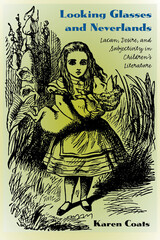
This groundbreaking study introduces and explores Lacan’s complex theories of subjectivity and desire through close readings of canonical children’s books such as Charlotte’s Web, Stellaluna, Holes, Tangerine, and The Chocolate War, providing an introduction to an increasingly influential body of difficult work while making the claim that children’s textual encounters are as significant as their existential ones in constituting their subjectivities and giving shape to their desires.

READERS
Browse our collection.
PUBLISHERS
See BiblioVault's publisher services.
STUDENT SERVICES
Files for college accessibility offices.
UChicago Accessibility Resources
home | accessibility | search | about | contact us
BiblioVault ® 2001 - 2024
The University of Chicago Press









